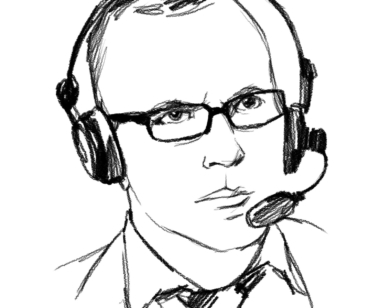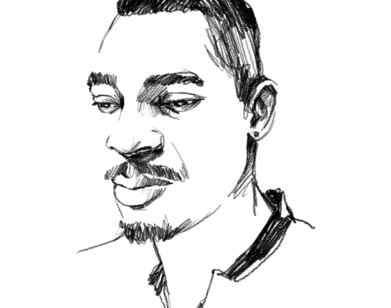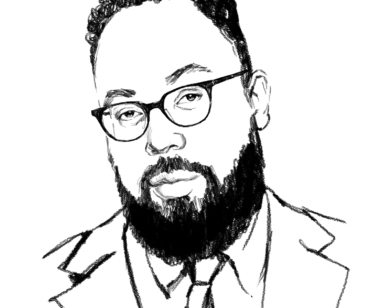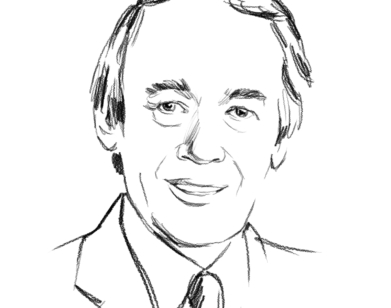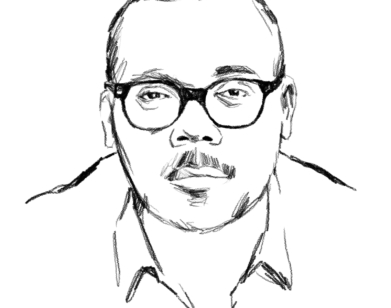ask a sane person
David Adler on the Decline of American Exceptionalism
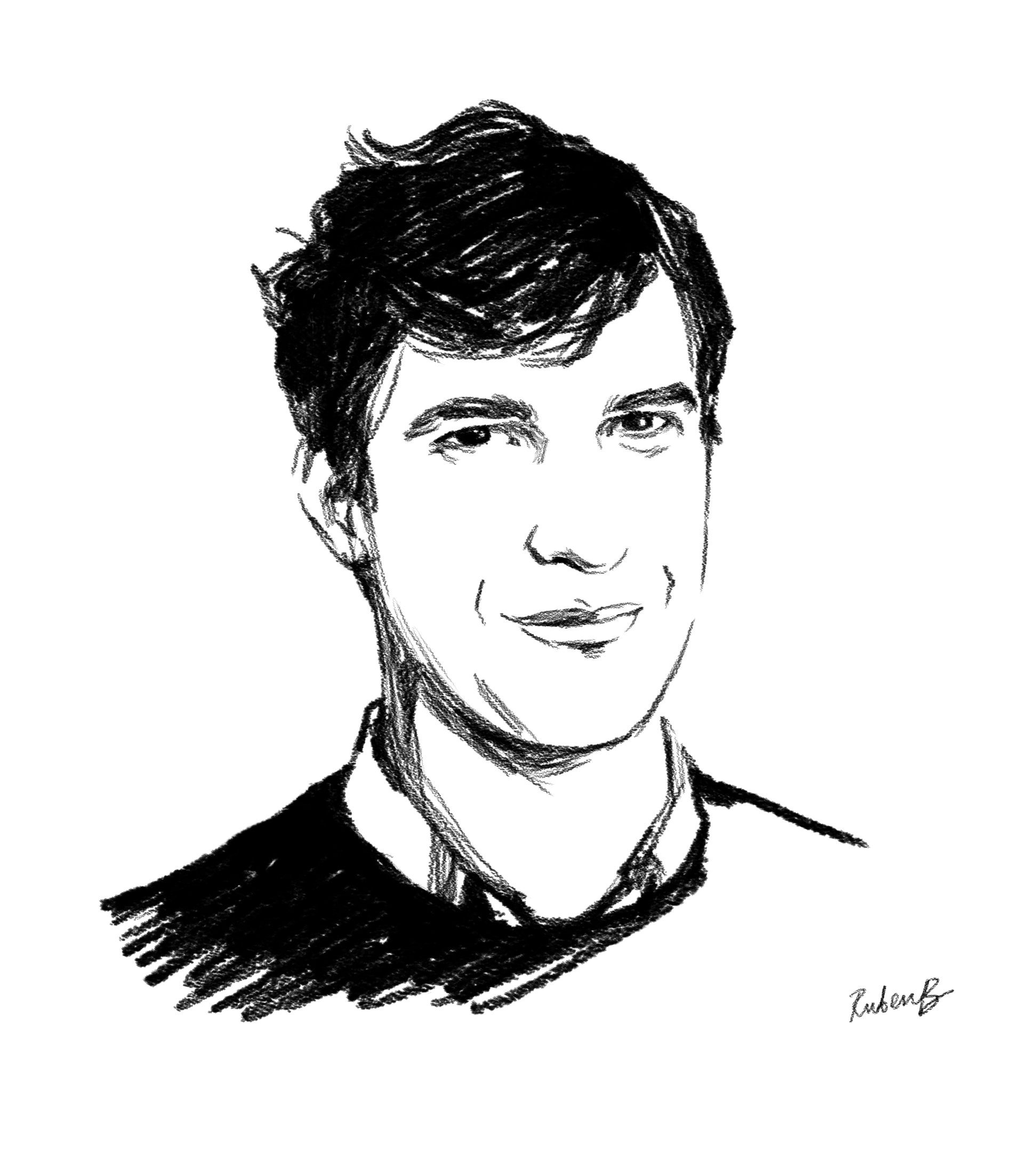
Long before David Adler worked as a foreign-policy advisor for Bernie Sanders’s most recent presidential campaign, he had been honing his field research on political economics the world over, from housing in Mexico City to slum redevelopment in New Delhi. It is no surprise, then, that the young writer and thinker’s cri de coeur is a robust and forward-reaching notion of internationalism, tackling novel approaches to how social movements and collectives can work and operate effectively across borders. Thinking internationally about problems that are inherently globe-spanning in scope is surprisingly rare of late. Whether due to the pandemic or the encroaching presidential election, the conversation on every side has grown militantly nation-centric this year. A big part of Adler’s quest is getting us out of our comfort zones or, in other words, to stop thinking locally and start uniting planetarily. This past May, Adler co-founded an organization devoted to trans-national thinking called Progressive International, and it is holding its inaugural summit, “Internationalism or Extinction,” from September 18 to 20. Adler, who had spent most of the year in Rome, answered our questions while driving from Italy to his new home in London. We sent him these questions while he was steering through Switzerland.
———
INTERVIEW: Where are you and how long have you been isolating?
DAVID ADLER: I spent the first wave of the pandemic confined to a little apartment near the center of Rome and to the 200-meter radius that the Carabinieri permitted me to travel around it. I arrived in Rome in January on a visiting fellowship from my hometown of Los Angeles. A month later, Italy became the frontline of the fight against the virus, and my flat became a front-row seat to each new phase of the pandemic: denial, then panic, then balcony singing, then fatigue, and finally freedom. So I experienced the pandemic as a kind of grim premonition, watching the virus take Italy before traveling—slowly, inevitably, and with increasing ferocity—to take the United States.
INTERVIEW: What has this pandemic altered about your view of society?
ADLER: Above all, this pandemic has drawn my attention to the distinction between societies. Consider again the cases of Italy and the United States. How often we hear the counties of the North Atlantic lumped into a category of the “developed world,” the “West.” And yet one of these countries struggled and succeeded to contain the virus, while the other outright encouraged its transmission. Pundits love to point to divergent Covid-19 death counts as evidence of Trump’s stupidity or incompetence. But the problem goes so much deeper. The United States lacks a culture of collective action, of delayed gratification on the basis of shared sacrifice. This should come as no surprise; the institutions that could coordinate such action have been eviscerated—from trade unions to the state. The result is that the pandemic has been privatized, and our response turned into a performance of personal ethics. If the pandemic has altered my view of American society in any way, it is this: I did not expect so many Americans to accept the devastation of the pandemic as the “new normal,” even as other countries resume their “old normal” life. Our resignation to the virus reflects the poverty of our collective imagination.
INTERVIEW: What has this pandemic confirmed or reinforced about your view of society?
ADLER: I cannot think of a more powerful illustration of the logic of solidarity: we are only as healthy as our sickest neighbor. The drumbeat of nationalism has been growing louder by the day—not only of its authoritarian variety, but also of its “progressive” or left-wing variety, which advocates hard borders as the solution to a failed globalization. And then here comes the virus, making clear that an outbreak anywhere is a threat to public health everywhere. It is a call for international solidarity not as aid or charity, but as a strategy for survival.
INTERVIEW: What is the worst-case scenario for the future?
ADLER: That we fail to hear this call to solidarity! Or worse, that we invert it: Instead of investing in a multilateral system that succeeds to take care of our neighbors, we decide that we would prefer not to have neighbors at all. The international arena is already a very dark place, run by a tiny set of suits and lawyers. Remember when—just over a year ago—the United Nations quietly signed a memorandum of understanding with the World Economic Forum, giving the Davos club direct access and leverage over the work of UN agencies? I think the worst-case scenario is that we continue to turn in, back to the nation, and away from the world. How strange it is that, in this historic pandemic, there is virtually no major movement advocating a massive reinvestment in the World Health Organization to give it real capacity in the face of certain pandemics to come. If we cannot hear the call for international solidarity as the death count from Covid-19 piles up, I worry we stand little chance against a climate crisis that continues to loom on the horizon. And the suits in Davos will keep running the show.
INTERVIEW: What good can come out of this lockdown? Are there any reasons to hope?
ADLER: The brightest silver lining that I can see is the terminal decline of American exceptionalism. This is obviously not its first funeral, and I do not mean to suggest that the U.S. power has meaningfully diminished in the course of the pandemic. We still have our scores of military bases around the world, and the pandemic provided an opportunity for the U.S. Federal Reserve to flex its financial power, rather than retreat. But there is something uniquely devastating here to the myth of exceptionalism, which is distinct from the reality of empire. The virus is not only laying bare all the rot that has accumulated in our society, it is doing so for the world to see. Our passports have turned from gold to garbage overnight. I believe that this is a small reason to hope: that we might have more humility in the face of the world.
INTERVIEW: What does our future as a nation look like?
ADLER: Reckoning after reckoning after reckoning. This is what comes after exceptionalism: hard truth and, one hopes, reconciliation.
INTERVIEW: What has been your daily routine during this time?
ADLER: I wake up each morning to the blare of the factory-setting marimba ringtone. I then stare at my phone screen and scroll through my inbox until the flow of stress chemicals in my brain is heavy enough to force me onto my feet. I make bad coffee. I hunch over my computer for several hours, then take a break to make the same salad that I made the day before and the day before that: a cucumber, a pepper, an onion, and some cheese. I sit back down in front of the screen, and then it’s late and I have no idea what to do for dinner. I take no pride in this routine. My only hope is that putting this description onto the page succeeds in shaming me to change it.
INTERVIEW: Describe the current state of your hair?
ADLER: I’ve cut my own hair since I was a teenager. Friends sometimes ask how I manage, but the trick is simple: Accept that your hair is a constant work in progress, and that it will always kind of look like shit. As for its current state, unkempt would be kind. I have peyos sprouting from my sideburns. I twirl them when I get stressed.
INTERVIEW: On a scale of 1 to 10, what is your level of panic about the current state of the world?
ADLER: Panic is a pathway to demagoguery, so I try to keep my panic levels low. I prefer anxiety—really high-pitched, hacksaw anxiety. I turn that knob to 8 most days, and just keep twirling my peyos.
INTERVIEW: How can America work to ensure more equality and justice on a day-to-day level?
ADLER: There are no surprises in the instruction manual. The policy agenda for equality and justice has been clear for a long time: dismantle the carceral state; euthanize the rentier; pay full reparations; reinvest everywhere; restore land and resources to the peoples from whom they were stolen. The burning question is how we realize this agenda. And here, I think we need to break with the concept of “America” as a subject that is capable of doing anything. So much of our politics is premised on the notion of a unified “national interest,” some shared fate that binds all citizens of the United States. The problem is that the evidence just doesn’t support it. The “national interest” is a weary myth that can barely hide our roiling class war. Cue Warren Buffett: “There’s class warfare, all right, but it’s my class, the rich class, that’s making war, and we’re winning.” So I think that America will discover more equality and justice when it stops looking to the people who profit from inequality and injustice to lead us to that discovery.
INTERVIEW: Do you think protests are effective tools for changing the system? How does it make a difference in the long term?
ADLER: Our methods of measuring change are all wrong. Pundits obsess over the narrow causal relationship between protest and policy: “Did X march deliver on Y demands?” Of course not. Radical change rarely operates over that time scale. I am generally suspicious of concessions that happen too quickly; they tend to be the most cosmetic, or constructed with a trap door to protect the status quo. The purpose of protest is to forge a new political subject, the “movement”—to feel the power of collective action, the thrill of reclaimed space. In other words, I think that protest can be just as powerful for the protesters as for the powerful against whom they are protesting.
INTERVIEW: How do you personally channel your anger? Do you find anger to be a useful emotion?
ADLER: My friend Sam tells the story of a professor who routinely asks his students, gauging their passion for political change, “How pure is your anger?” I don’t think we can measure anger by its usefulness. It’s more like a pulse: If you are not angry, are you even alive? In this sense, I try not to channel my anger—as if to metabolize it—but instead to let it simmer, to coexist with feelings of joy and love. That is the challenge.
INTERVIEW: Which young leaders of the moment inspire you?
ADLER: The brave founders of the Mathare Social Justice Centre in Kenya: a grassroots movement that has built community centers across Nairobi’s informal settlements and organized young people to fight for their rights to life, to dignity, and a sustainable future.
INTERVIEW: What’s the next step after protests in the streets? Where does the righteous rage go?
ADLER: Straight into the social fabric! Protest alters the genetic code of our societies. And that is because it changes us as people. So the next step after marching in the streets is to keep marching through the institutions where we live, work, and socialize. This is why I object to the view that protest is some kind of digestive process. No! Protest is a pathway, and the righteous rage comes with us, changes us, and—with organization—changes every institution that surrounds us.
INTERVIEW: Do you work best alone or in a group? Can you protest from home?
ADLER: Protest is not confined to any sphere of our lives. Street protests are particularly powerful because they require us—by definition—to reclaim the streets from cars and commerce, to throw sand in the gears of society. But insofar as “home” is where we relate to so many other people—not only online, but also in our families—I think protest both can and must come home. And this is great news for me, because the geography of my working life is stretched over time zones and across borders. So I spend all day “alone in a group.” I call it the Zoom treadmill.
INTERVIEW: Americans tend to find the topic of race uncomfortable. How do we start the conversation and address it directly?
ADLER: The conversation has already started! And in ways that are more candid than I have seen in my lifetime. Here in Europe, however, the silence is really deafening. American discomfort on the topic of race barely holds a candle. In the wake of George Floyd’s murder, the leaders of the European Union issued statements of solidarity with the Black Lives Matter movement at the exact same time that they were abandoning Black lives to die in the Mediterranean and funding their deportation, detention, and torture across Africa. The problem is not only that this continent has failed miserably to grapple with the crimes of its colonial past. It is also that Europe parades itself before the world as the face of decency and liberal democracy while operating massive concentration camps that detain Black and Brown families as a deterrent to all those who would dare dream of emigration.
INTERVIEW: What thinker have you taken comfort in of late and why?
ADLER: Mike Davis has been my guide to the moment. I find comfort in his thinking for three reasons. The first is homesickness. I found a copy of Davis’s City of Quartz early in my adolescence, and I was completely enchanted with this mixture of urban myth and raw political economy. It radically changed the way that I saw my hometown, and inspired me to begin my research on the right to the city. I spent several years working on the political economy of housing—first in India, then in Mexico, then in Britain—and Davis was a constant companion on that journey. So that’s reason two. And the final reason is his prophetic writing on pandemic. I would say there is a certain comfort in knowing that this pandemic, despite all the talk of its “unprecedented” nature, really does have precedent, really was predictable, really is coded into the political economy of globalized capitalism. Davis’s patient and powerful writing is indispensable in making this case.
INTERVIEW: If 2020 were a song, which song would it be?
ADLER: In terms of both relevance and resonance, I would say Limp Bizkit’s “Break Stuff.”
INTERVIEW: Where did we go wrong? Like, what was the exact moment?
ADLER: The appointment of Paul Volcker to the chairmanship of the Federal Reserve in 1979. We are really living in Volcker’s world. Not just because of his obsession with inflation, which has severely misguided policymaking in the United States for a half-century since, and that of our neighbors in turn. But also because of his role in the “Nixon shock” that put the final nail in the coffin of the Bretton Woods system and firmly established dollar supremacy in the global economy. It’s been said that Richard Nixon would just “turn Volcker’s proposals into law.” I date our going wrong to his appointment at the Fed, though, because of his own shock—the “Volcker shock” of 1980—that forced countries across the Global South into an immediate debt crisis, which turned into a lost decade, and set the stage for the great neoliberal turn at the hands of an International Monetary Fund that stepped in to “save” them.
INTERVIEW: Which (admittedly totally unqualified) celebrity would you trust with the planet’s future?
ADLER: Absolutely no one. I think celebrity culture is a CIA op to destroy all prospects of social progress. But! I do have a candidate for a celebrity that I would trust to mediate it: Esther Perel.
INTERVIEW: If you could stop time at one particular moment in your life, which moment would it be?
ADLER: There is one memory that I treasure as the happiest day of my life. It was the summer of 2000, and the day proceeded in three parts. I played with my brother in my parent’s swimming pool. My dad bought me a $2 pack of basketball cards, one of which framed a piece of Shaquille O’Neal’s Lakers jersey. And then we all went to the movie theater to watch Jackie Chan, Lucy Liu, and Owen Wilson in Shanghai Noon. A perfect day.
INTERVIEW: What’s one skill we should all learn while in quarantine?
ADLER: I am hardly in a position to prescribe lessons from quarantine. Did you read my daily routine? I do think that quarantine provides an opportunity to reckon with our screens. I did not realize how carefully calibrated my life was between work and non-work, screen time and off-screen time, computers and people. Isolation was like a dam breaking between these dimensions of my life, and screens flooding in to fill the void. My phone was once an appendage. Now it is my life support. So I hope quarantine can allow us to be more intentional about when and how we go online, rebuilding a dam that we didn’t know existed. Perhaps the word I am looking for is “discipline.” I would like some more discipline.
INTERVIEW: What prevents you from giving up hope in the human race?
ADLER: Our long history. Did you know that when the Black Plague arrived in Italy, it reduced the population of Siena from 42,000 to 14,000 in a matter of months? There is a certain solipsism in our predictions of demise. This is not our first apocalypse. It is not even the first in living memory. The turn of the millennium brought fears of existential malfunction. The spread of nuclear technology threatened extinction long before that. Every generation hears a rumor that it might be the last. And over the past several centuries, specific populations have faced the prospect of annihilation at the hands of colonizers, fascists, and white supremacists. I maintain hope by looking to past social movements that persevered, and new ones emerging to fight for an ecological future. Being Jewish also helps.
INTERVIEW: Who should be the next president of the United States?
ADLER: The next sane person you ask, of course.


